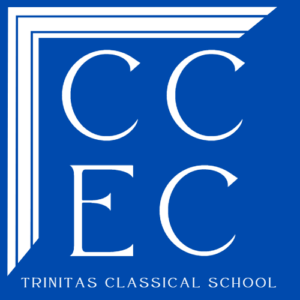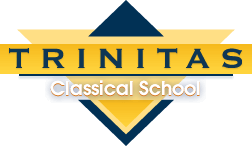 I was going to title this post “Screen-free Learning at Trinitas,” but our decision to be a screen-free* environment is about more than helping kids build their attention spans for academic achievement. It’s also, and more importantly, about helping them build their ability to pay attention to others, to engage the person next to them or across the table, to “be present” in community. We founded Trinitas in 2006, the year before the first iPhone was introduced. Already many schools were jumping on the screen-learning bandwagon. We resisted that temptation, not primarily for budget stewardship reasons but rather for the sake of the students (and their teachers and families). We suspected that benefits of screens in schools might turn out to be something like the emperor’s new clothes. What we had not anticipated was how screens at school and at home and in cars and in pockets and nearly perpetually in hands could be worse than the naked emperor.
I was going to title this post “Screen-free Learning at Trinitas,” but our decision to be a screen-free* environment is about more than helping kids build their attention spans for academic achievement. It’s also, and more importantly, about helping them build their ability to pay attention to others, to engage the person next to them or across the table, to “be present” in community. We founded Trinitas in 2006, the year before the first iPhone was introduced. Already many schools were jumping on the screen-learning bandwagon. We resisted that temptation, not primarily for budget stewardship reasons but rather for the sake of the students (and their teachers and families). We suspected that benefits of screens in schools might turn out to be something like the emperor’s new clothes. What we had not anticipated was how screens at school and at home and in cars and in pockets and nearly perpetually in hands could be worse than the naked emperor.
We’d like to highlight two articles recently linked by Protect Young Eyes. (If you do not receive their emails, we recommend you sign up for them.) The first article is very short, it’s on social media and brain development. The second is longer, but worth the read; it’s a call by Doug Lemov for phone-free schools and for re-wiring (or de-wiring) the learning environment for attention, achievement, and belonging. As Lemov points out, it’s not good enough for schools just to say “be responsible with your phones.” I remember waiting to pick up one of my high schoolers for an appointment during lunch. It was a lovely day, and a group of girls was eating together outside. I should say “together.” In the ten or more minutes that I waited, not one of them looked up from her cell phone. Well, that’s not entirely accurate, one did look up briefly. To take a selfie. I’m not exaggerating when I say my heart broke a little when I witnessed that snapshot of what we are losing. Simply put, in light of the overwhelming data on attention, anxiety, loneliness, and depression, a best practice for school and home is carving out long periods of time free of screens.

